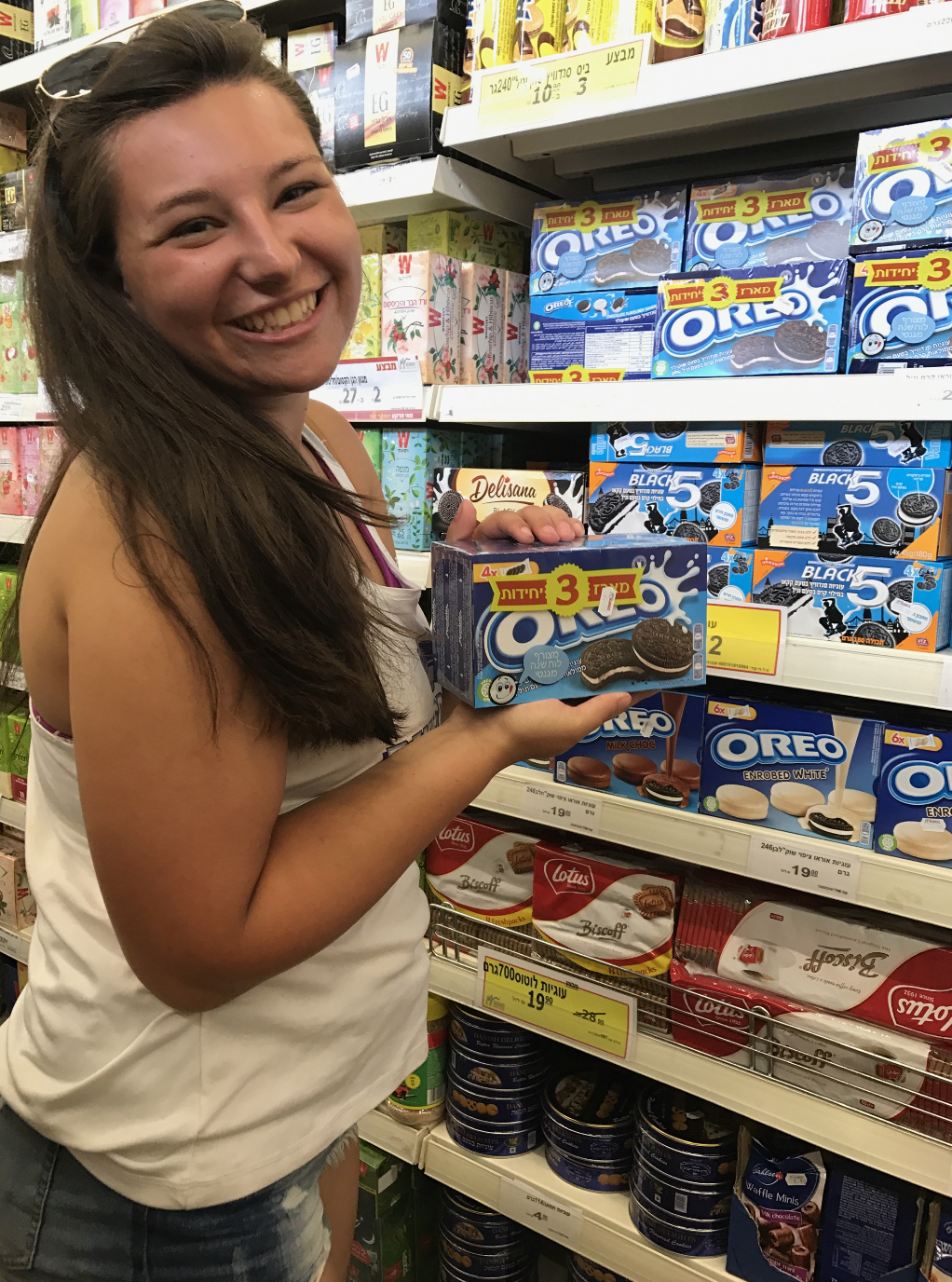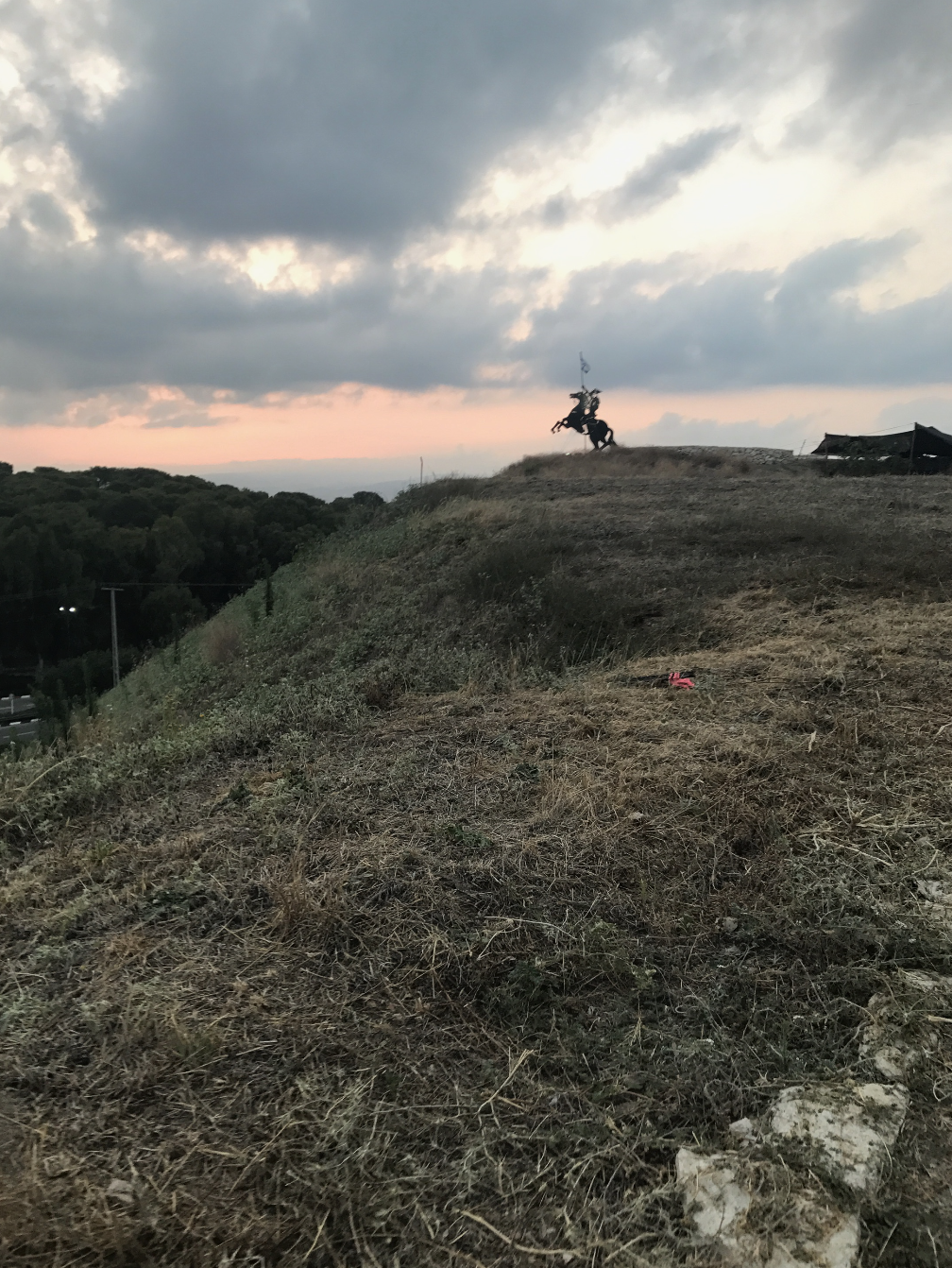A Picky Eater’s Guide to Tel Akko
By Paige Ekert.
Being a picky eater is occasionally problematic. I have learned to survive on a handful of food staples and have developed a fairly good idea of tastes and textures that I will or won’t like. I have places that I frequent at home and at school, and when in doubt, there are always chicken fingers from the children’s menu.
Being a picky eater while abroad is a daily struggle. Most foods are, or at least appear, unfamiliar to me. As a self-proclaimed “reverse pescetarian” in a coastal area, I avoided many of the restaurants in the Old City. I don’t speak the language well enough to convey my multiple needs (“I want this but without X, Y, and Z”), and even with English menus, a full description of each food item was not guaranteed.
But fear not! By adhering to the following tips, even the pickiest of eaters are sure to survive, and even enjoy, their culinary experiences in Akko.
Never Skip Lunch
Lunch is, without a doubt, the best meal of the day. As the daily “meat meal”, lunch often consists of some type of chicken and multiple types of carbs. Though you may be tired after being at the tel all morning, this is not a meal to miss! Lunch always consisted of rice, chicken schnitzel, and potatoes, and the occasional pasta or other meat dish made special guest appearances throughout the week. This is the meal most likely to fill you up for the day, and besides, why would anyone ever miss a meal where chicken fingers are being served?
Ice Cream Is Always A Good Idea
It isn’t hard to find ice cream in Akko as it is literally being sold on every street corner. It would be practically impossible for anyone to walk away from one of these ice cream carts without a frozen treat. Nestle and Magnum both sell products in the ice cream cases on the streets and Ben and Jerry’s ice cream pints are sold in grocery stores throughout the city. Additionally, the same ice cream carts exist all throughout Israel, so the same ice cream you would get at 7 Days can be found in Caesarea and Jerusalem as well. Trust me, if you are in Israel during the summer, don’t pass on the ice cream.
My Market Is Truly Your Market
Even when food is being provided for you, it is generally a good idea to explore the local grocery store and pick up some quick snacks. My Market is a large, nearby food store that is home to all sorts of food items and other necessities, should you need them. In my trips to this store, I brought a box of cereal, ice cream, cookies, crackers, and other small snacks that can easily be packed for either our Saturday excursions or for the bus ride to the tel in the mornings. Whether you’re looking for sunscreen, orange juice, a pack of gum, or dried apricots, My Market has it!
Bread Will Always Be There To Welcome You Home
If you’re like me, you have learned to ignore your grandmother’s advice about ‘not filling up on bread before meals’, because for me, and many other picky eaters, the bread is our meal. The good news is that bread, in some form or another, is present at every single meal. Whether it is pita bread, a dinner roll, or a slice of sandwich bread, bread is guaranteed to have a place at the table and butter, jam, or chocolate spread is never far behind. Seriously, there will always be bread. It’s truly wonderful.
Brand Names Are Your New Best Friend
It doesn’t matter what you eat at home, when you’re abroad, you will cherish any familiar logos you can find. If you are a picky eater who can’t read Hebrew, you are going to fall in love with Pringles and Oreos and any other brands that are recognizable and give clues as to what you are actually eating. While American name brands aren’t available for every food item, you will be grateful for the ease of shopping for brand names and the familiarity of eating a snack that was probably a staple from your childhood.
You Won’t Die If You Try Something New
While it is easy to write off many different and new types of food, the truth is, trying new foods is actually a really great experience that will only enhance your adventures while abroad. Against my initial wishes, I tried several types of food while in Akko, and even found some that I liked! Even though halvah “tastes like nature and has the texture of sandstone” (verbatim Paige Ekert, circa 2018), I am glad that I was encouraged to try it. Besides, if it wasn’t for trying new things, I never would have discovered shawarma, which is more or less an Israeli taco, and is quite delicious. The moral of the story is, you never know what you like until you try it, even if you’re 19 years old and pretty set in your ways. There is a great big world out there full of different types of food, so get out there and try something!

